If you want a humorous take on what happened at Volkswagen this week, the above video sums it all up.
During my 2010 mayoral campaign, I noted that if New Zealand did not diversify its economy to have more of a focus on technology, there could be a problem. Relying on primary products (I didn’t say dairy specifically) wasn’t something a western economy should be doing and, of course, one signal that things would change in Wellington would be my idea for free, inner-city wifi. I wasn’t trying to be a smart-arse; I was just pointing out an obvious fact, one that has taken many years for others to be concerned about, with Fonterra payouts dipping. News travels slowly.
Right now, this Reuter article (sorry, folks, having grown up in New Zealand where ‘NZPA–Reuter’ was in the newspapers every day, the plural form doesn’t come naturally to me) suggests that the Volkswagen débâcle could harm other German car makers. How great that harm is depends on how tied those brands are to the German nation brand. The danger is, according to the article, that with the German car industry employing 775,000 people, and car and car parts being the country’s most successful export, a dent in their reputation could have drastic effects for an economy. According to Michael Hüther of the IW economic institute, the car industry is at the core. Having other industries that are strong is important to any economy, and Germany has ensured that, despite one taking a knock, it has others that will keep it ticking over. Nearly 70 per cent of the German economy is in services. There will be worries in foreign exchange, but I doubt we’re going to see other German car makers tanking because of this.
But Volkswagen, some argue, is very wedded to the German psyche. Its founding, which no one really talks about because you’d have to mention the war, ties it to the state, and its postwar resurrection was borne out of the British Army wanting to get the people of the former KdF-Stadt some gainful employment. It was the great German success, the company whose Käfer became a world-beater, overtaking the Ford Model T in terms of units made.
The VW symbol is very German, borne from their graphic design ideas of the 1930s. The German name, the quirkiness of the Käfer, its relative reliability, and its unchanging appearance probably tied VW and Germany closer together in terms of branding. For years, you would associate Volkswagen with ‘Made in Germany’, just as you would with Mercedes-Benz and BMW, even if a sizeable proportion of their production is not German at all today. (Mercedes and BMW SUVs are often made in the US; Volkswagen makes its Touareg in Slovakia. Volkswagen is one of the biggest foreign players in China, and in Brazil it’s practically considered a domestic brand.)
Think of the postwar period: Germans weren’t always smart about how to market their cars. BMW had a bunch of over-engineered cars that were completely unsuited to the market-place, such as the heavy, baroque 501; it wound up making the Isetta under licence toward the end of the decade because it was in such deep trouble. Volkswagen eschewed fashion in favour of a practical little car that, too, placed engineering ahead of marketing fads. From this, the idea of German precision engineering was enhanced from its prewar years, because engineering was, by and large, top priority. Mercedes-Benz, being far more successful at selling its luxury cars to the rich than BMW, cemented it and added cachet and snobbery.
It was only the foreign-owned makers in Germany that went for fashion, such as Ford and Opel, selling convention to the masses wrapped in pretty clothes: the Ford Taunus TC had styling excesses demanded by Ford president Bunkie Knudsen at the time of its development, but it broke no new ground underneath.
Nevertheless, any time Ford sources from Germany, whether it’s for the US market or here in New Zealand, the notion of “German precision” seeps through in the marketing; when the sourcing changed, as has happened with the Focus here, it’s very quietly dropped. The German car manufacturers carved themselves a nice, comfortable niche, thanks to an earlier era which, to some extent, no longer exists.
Mercedes-Benz decided it was not about ‘Made in Germany’ some years ago, favouring ‘Made by Mercedes’, and turned itself into a marketing-led organization; quality suffered. Volkswagen, in its quest to become the biggest car maker in the world, and the master of everything from Škoda to Bugatti, did what GM did years before, by allowing each brand to maintain its character but sharing the stuff that customers didn’t see. It, too, became more marketing-led, and it’s not had a stellar performance in owner surveys for a while.
You could say that there has been a gradual separation between the brands and what we hold about the German national image in our minds. The “Germanness”, which once accounted for the companies charging a premium, has been decreasing; Volkswagens, in many parts of the world, are affordable again, even in the US where the NMS Passat is built locally in Tennessee. South African- and Mexican-sourced Volkswagens in New Zealand are cheaper in constant dollars compared to their predecessors of a generation before. The German image is not gone altogether—the name, graphics and the æsthetic of the product see to that—but it does mean the effects of the scandal might not spread to other brands as much as some commentators think.
The original study that showed Volkswagen was cheating on its emissions’ tests in the US, which is nearly two years old by now (it makes you wonder why it only surfaced in the media this week), also showed that BMW performed better than what it claimed. It’s not impossible for the other manufacturers to separate themselves from Volkswagen, because their individual brands have become strong. Thanks to the weaker relationship between Volkswagen and the German brand, this scandal will likely confine itself to the single car group. It’s not great news for the world’s biggest car maker, but its compatriots should see this as an opportunity more than a threat.

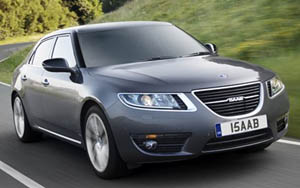
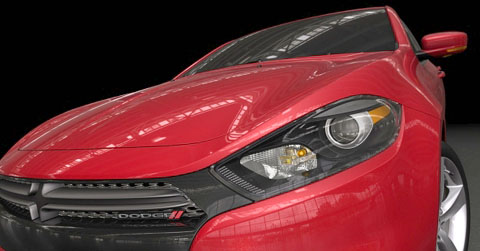
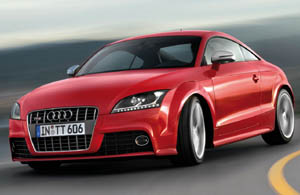
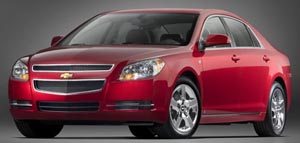


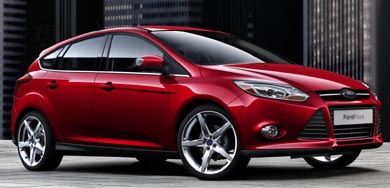
2 thoughts on “Volkswagen’s scandal won’t spread to other German car groups”